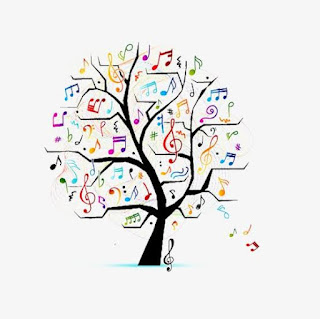Throughout history, music has been celebrated for its ability to touch our emotions, uplift our spirits, and bring people together. However, its power goes beyond mere entertainment. In recent years, a growing body of research has shown that music can also be a powerful tool in promoting mental and physical wellness. This has led to the development and rise of a field known as music therapy. In this article, we will explore the healing power of music and how music therapy can benefit individuals in their journey towards improved well-being.
Music has a unique ability to bypass our rational mind and directly connect with our emotions. It has the power to evoke memories, trigger specific moods, and create a sense of comfort and solace. This is why music is often used as a form of self-expression and communication, even for those who struggle with verbalizing their thoughts and emotions. In the realm of therapy, music has been found to be particularly effective in addressing a wide range of mental health issues, such as depression, anxiety, and trauma.One of the key mechanisms through which music therapy promotes healing is its impact on the brain. Numerous studies have shown that listening to music activates various areas of the brain involved in emotional processing, memory, and reward. This activation can lead to the release of neurotransmitters like dopamine, which are associated with pleasure and motivation. By stimulating these areas and neurotransmitters, music therapy can help regulate mood, reduce stress, and promote a sense of well-being.
Music therapy is not limited to passive listening; it can also involve active participation. Playing an instrument, singing, or engaging in rhythmic activities can have a profound impact on physical wellness. For example, studies have demonstrated that rhythmic auditory stimulation, such as drumming, can improve motor coordination and balance in individuals with movement disorders like Parkinson's disease. Playing an instrument or singing can also enhance respiratory function, improve cardiovascular health, and strengthen the immune system.In addition to its effects on the brain and body, music therapy also nurtures social connections and fosters a sense of belonging. Group music therapy sessions provide a safe and supportive environment where individuals can connect with others who share similar experiences or challenges. This sense of community and understanding can be particularly beneficial for those struggling with feelings of isolation or loneliness. Moreover, music therapy encourages communication and collaboration, promoting the development of interpersonal skills and emotional intelligence.It is important to note that music therapy is a specialized field that requires trained professionals. Music therapists are skilled in assessing individual needs, designing personalized interventions, and evaluating progress. They use a variety of techniques, including listening to pre-recorded music, creating and improvising music, songwriting, and guided imagery. These interventions are tailored to each individual's unique goals and preferences, ensuring that the therapeutic process is meaningful and effective.
The healing power of music is a universal phenomenon that transcends cultural and linguistic boundaries. Regardless of one's age, background, or musical ability, music therapy offers a non-invasive and holistic approach to well-being. It harnesses the inherent qualities of music to address physical, emotional, cognitive, and social needs. Whether it is through the soothing melodies that calm an anxious mind, the energizing rhythms that invigorate the body, or the harmonies that bring people together, music has the capacity to heal and transform lives.In conclusion, music therapy is a powerful and evidence-based approach to promoting mental and physical wellness. Its ability to engage the brain, influence emotions, and foster social connections makes it a valuable tool in addressing a wide range of challenges and enhancing overall well-being. As the field of music therapy continues to grow and evolve, we can expect to discover even more ways in which music can heal and support individuals on their journey towards a healthier and happier life. So, the next time you find yourself lost in a melody or tapping your feet to a rhythm, remember the profound impact that music can have on your well-being.
Tag:"Music therapy benefits for anxiety and stress" "How music improves mental health and well-being" "Healing effects of music on depression and mood" "Music therapy techniques for pain management" "The role of music in reducing symptoms of PTSD" "Music therapy for enhancing cognitive function" "Exploring the connection between music and sleep" "Using music to boost immune system health" "The impact of music therapy on autism spectrum disorders" "Music as a complementary therapy for chronic illnesses"




